News digest: Agri-food markets, production and trade
- 06/12/2021
- Posted by: Gaetan Dermien
- Category: Africa, Avocados, Cameroon, Caribbean, Citrus fruits, Coffee, Fiji, Kenya, Mangoes, News, Nigeria, Pacific, Rwanda, South Africa, Tanzania, Uganda
No Comments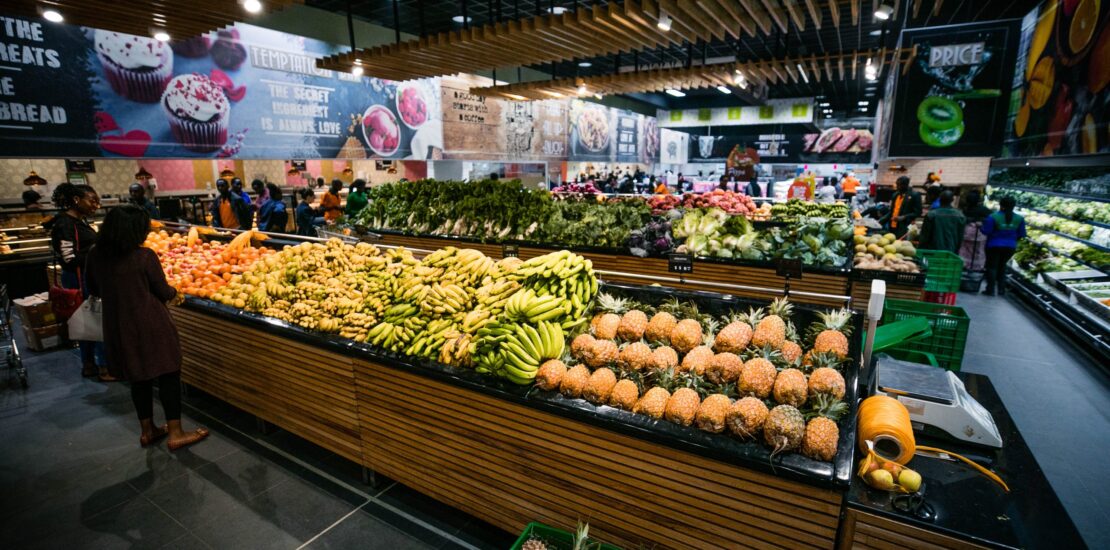 Agri-food Africa Rwanda: Rwanda plans to double its lending to agriculture Rwanda plans to double its lending to the agricultural sector from 5.2 to 10.4% by 2024. The goal is to modernise agriculture, which now accounts for one-third of Rwanda’s GDP. Small farms can rarely access financial services due to high interest rates (18-24% per year). Access to these loans will enable farmers to invest in new means of production and thus secure the food supply for a country whose… +
Agri-food Africa Rwanda: Rwanda plans to double its lending to agriculture Rwanda plans to double its lending to the agricultural sector from 5.2 to 10.4% by 2024. The goal is to modernise agriculture, which now accounts for one-third of Rwanda’s GDP. Small farms can rarely access financial services due to high interest rates (18-24% per year). Access to these loans will enable farmers to invest in new means of production and thus secure the food supply for a country whose… +Updated guidance on the new EU Organic Regulation
- 29/11/2021
- Posted by: Gaetan Dermien
- Category: Africa, Angola, Benin, Botswana, Burkina Faso, Burundi, Cameroon, Caribbean, Côte d'Ivoire, Ethiopia, Gambia, Ghana, Guinea, Kenya, Madagascar, Mali, Mauritania, Mauritius, News, Nigeria, Pacific, Rwanda, Senegal, Tanzania, Togo, Zambia, Zimbabwe
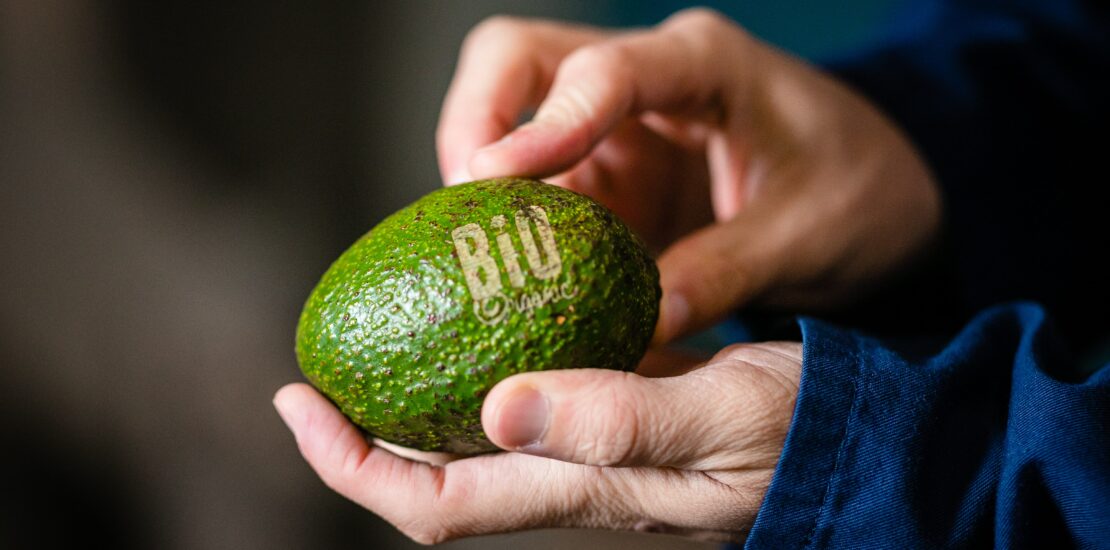 The new EU Organic Regulation (Regulation (EU) 2018/848), originally intended to apply from 1 January 2021, was postponed to 1 January 2022 to allow for completion of the secondary legislation due to Covid-19, among other reasons. In the meantime, several new delegated and implementing acts have been issued during 2021. At the time of writing, 18 items of secondary legislation have been published, and a further eight are in the adoption process. These latest changes are included in COLEACP’s “Update… +
The new EU Organic Regulation (Regulation (EU) 2018/848), originally intended to apply from 1 January 2021, was postponed to 1 January 2022 to allow for completion of the secondary legislation due to Covid-19, among other reasons. In the meantime, several new delegated and implementing acts have been issued during 2021. At the time of writing, 18 items of secondary legislation have been published, and a further eight are in the adoption process. These latest changes are included in COLEACP’s “Update… +IPPC/FAO RELEASE GUIDELINES
- 26/11/2021
- Posted by: Sandra Borma
- Category: Angola, Cameroon, Caribbean, Ethiopia, Gambia, Ghana, Kenya, Mauritius, News, Nigeria, Pacific, Rwanda, Sierra Leone, Tanzania, Uganda, Zimbabwe
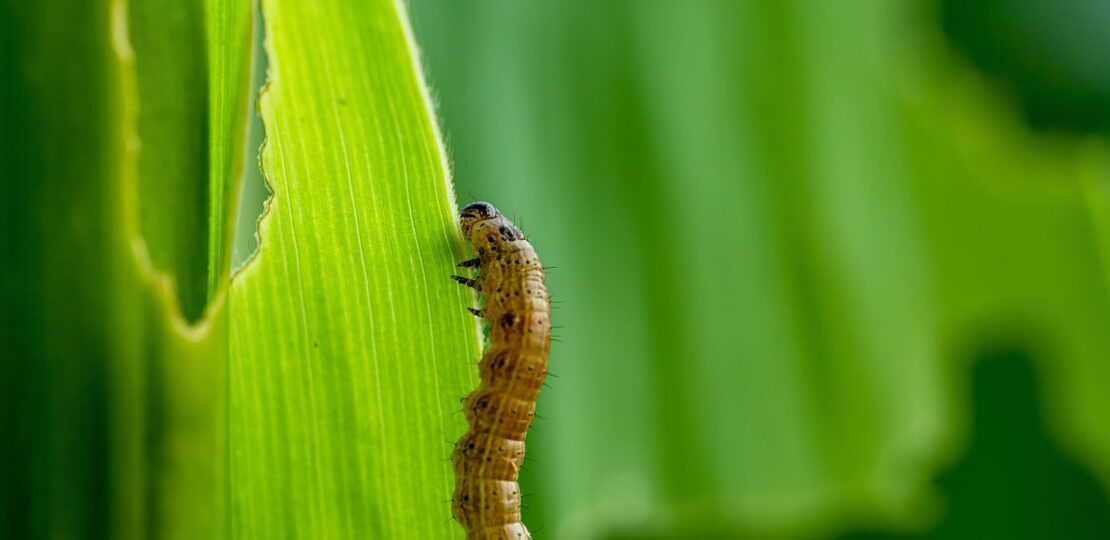 On 18 November the International Plant Protection Convention (IPPC) Secretariat and the Food and Agriculture Organization (FAO) released new guidelines on fall armyworm (FAW): “Prevention, preparedness and response guidelines for Spodoptera frugiperda“. Fall armyworm is affecting plant health in more than 70 countries, with many others at high risk of introduction. The guidelines offer globally harmonized measures and actions that countries can take to minimise the spread of the pest and protect their territories. It is a transboundary pest that… +
On 18 November the International Plant Protection Convention (IPPC) Secretariat and the Food and Agriculture Organization (FAO) released new guidelines on fall armyworm (FAW): “Prevention, preparedness and response guidelines for Spodoptera frugiperda“. Fall armyworm is affecting plant health in more than 70 countries, with many others at high risk of introduction. The guidelines offer globally harmonized measures and actions that countries can take to minimise the spread of the pest and protect their territories. It is a transboundary pest that… +5th African Diaspora Agrofood Forum: summary
- 26/11/2021
- Posted by: Gaetan Dermien
- Category: Africa, Angola, Cameroon, Ethiopia, Gambia, Ghana, Kenya, Mauritius, News, Nigeria, Rwanda, Sierra Leone, Tanzania, Uganda, Zimbabwe
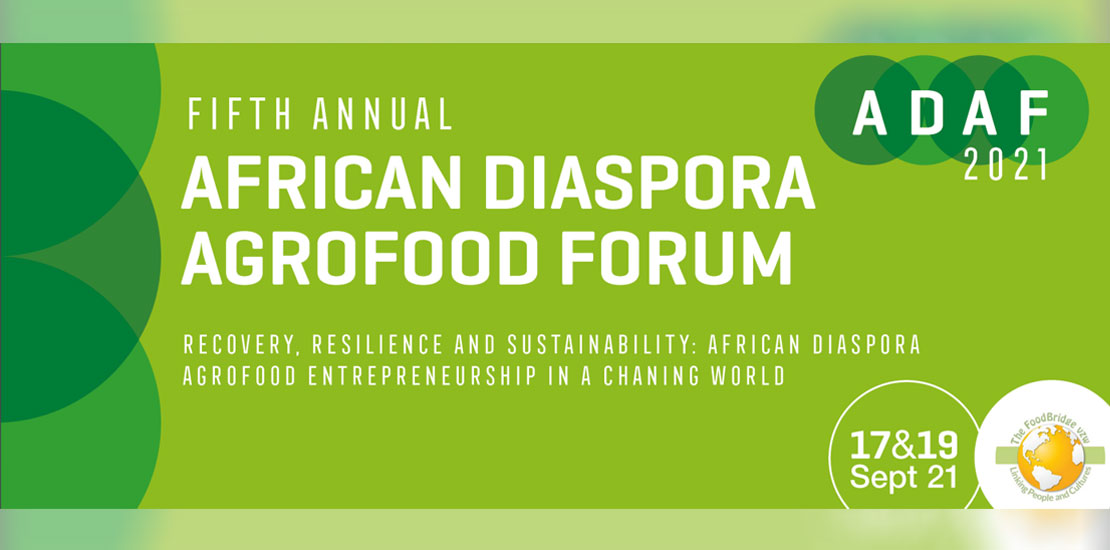 Last September, COLEACP supported Belgium-based NGO The FoodBridge with the organisation of the 5th African Diaspora Agrofood Forum which reunites stakeholders to discuss the role of the African Diaspora and global agribusiness in supporting development both on the African continent and in diaspora communities. Over 200 participants followed the online conferences on ‘Recovery, resilience and sustainability: African diaspora agrofood entrepreneurship in a changing world‘ on Friday 17th September 2021. The recordings of the conferences are available on COLEACP YouTube channel… +
Last September, COLEACP supported Belgium-based NGO The FoodBridge with the organisation of the 5th African Diaspora Agrofood Forum which reunites stakeholders to discuss the role of the African Diaspora and global agribusiness in supporting development both on the African continent and in diaspora communities. Over 200 participants followed the online conferences on ‘Recovery, resilience and sustainability: African diaspora agrofood entrepreneurship in a changing world‘ on Friday 17th September 2021. The recordings of the conferences are available on COLEACP YouTube channel… +SPS Good Practice Guide for Penja pepper
- 02/11/2021
- Posted by: Gaetan Dermien
- Category: Africa, Cameroon, Pepper
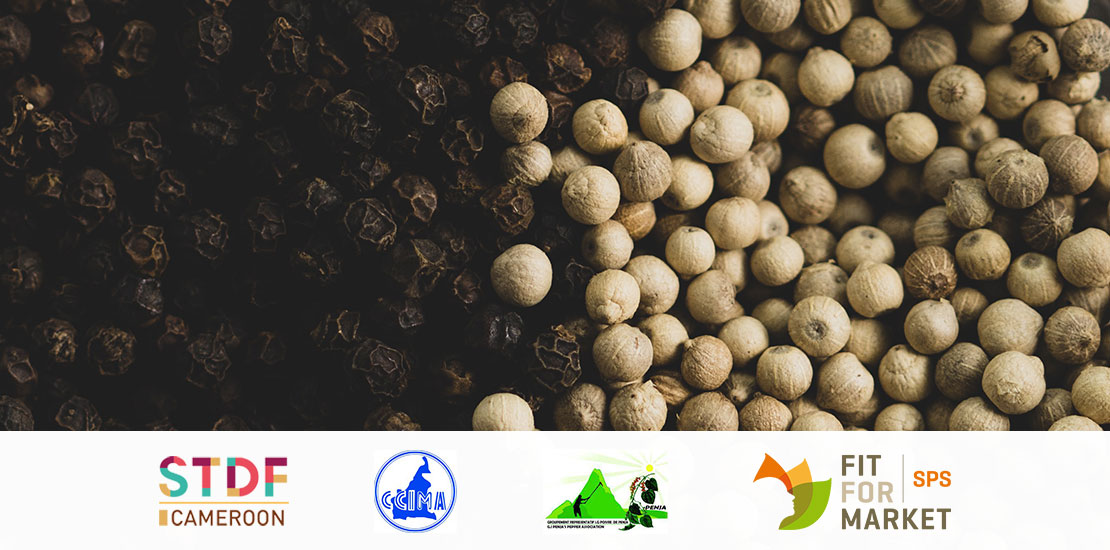 A “Sanitary and Phytosanitary Good Practice Guide for the Penja Pepper Sector” has recently been published in French and will soon be available in English. Together with sector stakeholders, the Penja Pepper Representative Geographical Indication Group (GRIGPP) managed the development and production of the guide, which is based on an analysis of SPS risks throughout the value chain. The publication was achieved through the project “Improving SPS capacity in the Penja pepper value chain”, which is funded by the Standards… +
A “Sanitary and Phytosanitary Good Practice Guide for the Penja Pepper Sector” has recently been published in French and will soon be available in English. Together with sector stakeholders, the Penja Pepper Representative Geographical Indication Group (GRIGPP) managed the development and production of the guide, which is based on an analysis of SPS risks throughout the value chain. The publication was achieved through the project “Improving SPS capacity in the Penja pepper value chain”, which is funded by the Standards… +Cameroon: Launch of COLEACP R-SAT
- 12/10/2021
- Posted by: Sandra Borma
- Category: Cameroon, News
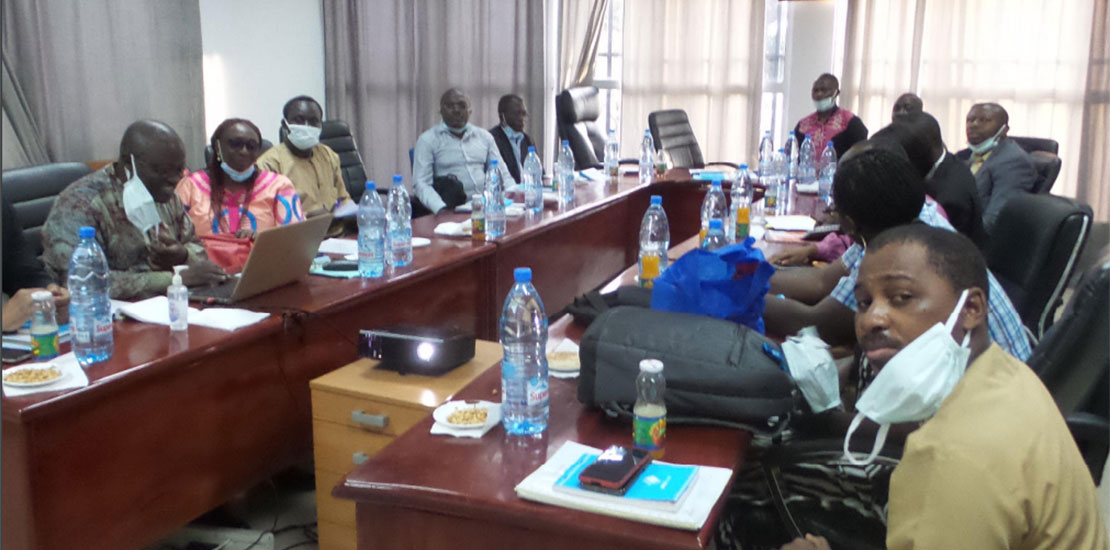 The first meeting of the working group for the implementation of the Rapid SPS Assessment Tool (R-SAT) in Cameroon took place on 30 September 2021 in Yaoundé, where a timetable and next steps were agreed upon. R-SAT has been developed by COLEACP to assist competent authorities, in consultation with key public and private sector stakeholders, to assess the status and functioning of SPS systems. COLEACP would like to thank the Director of the Department of Regulation and Quality Control of… +
The first meeting of the working group for the implementation of the Rapid SPS Assessment Tool (R-SAT) in Cameroon took place on 30 September 2021 in Yaoundé, where a timetable and next steps were agreed upon. R-SAT has been developed by COLEACP to assist competent authorities, in consultation with key public and private sector stakeholders, to assess the status and functioning of SPS systems. COLEACP would like to thank the Director of the Department of Regulation and Quality Control of… +COLEACP training – Improving SPS practices along the whole Penja pepper value chain
- 16/09/2021
- Posted by: Gaetan Dermien
- Category: Africa, Cameroon
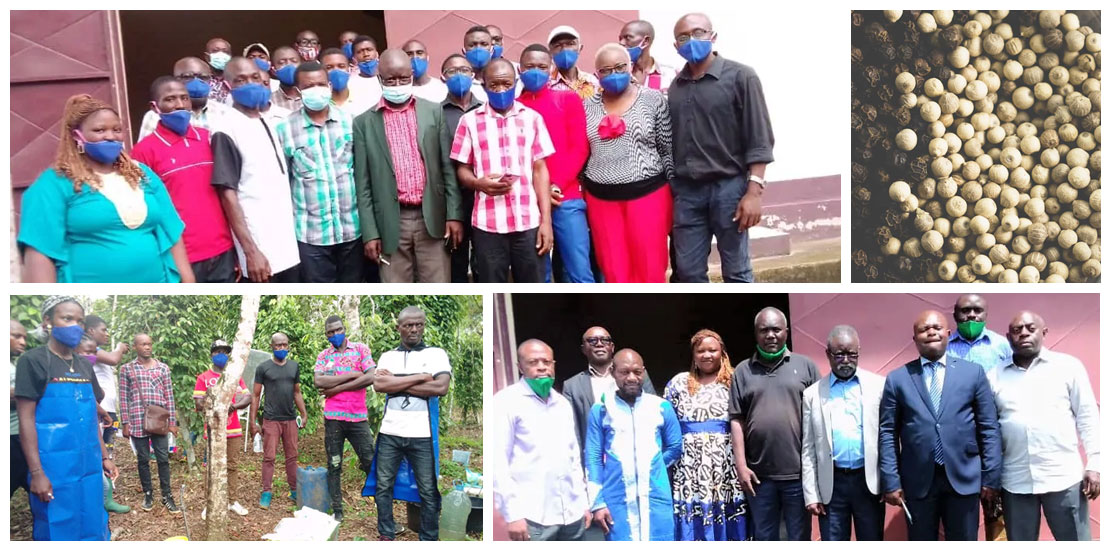 Since June, training on good SPS practices for the Penja pepper sector has been continuing through the Standards and Trade Development Facility (STDF) project “Strengthening the phytosanitary monitoring and certification system for Cameroon’s fruit and vegetable sector”. Stricter European regulations since 2016 threatened to limit the export potential of Penja pepper, a unique agricultural product originating from Cameroon. This project centres on supporting Penja pepper producers to understand the SPS risks and strengthening their capacity to deal with them. The… +
Since June, training on good SPS practices for the Penja pepper sector has been continuing through the Standards and Trade Development Facility (STDF) project “Strengthening the phytosanitary monitoring and certification system for Cameroon’s fruit and vegetable sector”. Stricter European regulations since 2016 threatened to limit the export potential of Penja pepper, a unique agricultural product originating from Cameroon. This project centres on supporting Penja pepper producers to understand the SPS risks and strengthening their capacity to deal with them. The… +EU MRL changes for 83 PPPs in 2021
- 26/08/2021
- Posted by: Gaetan Dermien
- Category: Africa, Angola, Antigua and Barbuda, Australia, Bahamas, Barbados, Belgium, Belize, Benin, Botswana, Burkina Faso, Burundi, Cameroon, Cape Verde, Caribbean, Central African Republic, Chad, Comoros, Cook Islands, Côte d'Ivoire, Country, Democratic Republic Of The Congo, Djibouti, Dominica, Dominican Republic, Equatorial Guinea, Eritrea, Eswatini, Ethiopia, Faroe Islands, Federated States of Micronesia, Fiji, France, Gabon, Gambia, Germany, Ghana, Greece, Grenada, Guinea, Guinea-Bissau, Guyana, Haiti, Hungary, Ireland, Italy, Jamaica, Kenya, Kiribati, Liberia, Luxembourg, Madagascar, Malawi, Mali, Marshall Islands, Mauritania, Mauritius, Mozambique, Namibia, Nauru, Netherlands, News, Niger, Nigeria, Niue, Pacific, Papua New Guinea, Poland, Portugal, Republic of the Congo, Rwanda, Saint Kitts and Nevis, Saint Lucia, Saint Vincent and the Grenadines, Samoa, Sao Tome and Principe, Senegal, Seychelles, Sierra Leone, Solomon Islands, Somalia, Spain, Suriname, Tanzania, Timor-Leste, Togo, Tonga, Trinidad and Tobago, Tuvalu, Uganda, Vanuatu, Zambia, Zimbabwe
 Key points Since the start of 2021, European Union (EU) maximum residue level (MRL) changes concerned 83 plant protection products (PPPs; 59 in 2020). These changes refer to modifications compared to the previous regulation, and can be either an increase or lowering of the MRLs for certain foods.COLEACP identified 27 key substances used in African, Caribbean and Pacific (ACP) horticulture that are affected by these changes. For 10 of the substances (ametoctradin, bupirimate, chlorothalonil, dimethoate, ethoprophos, myclobutanil, propiconazole, pyraclostrobin spinetoram,… +
Key points Since the start of 2021, European Union (EU) maximum residue level (MRL) changes concerned 83 plant protection products (PPPs; 59 in 2020). These changes refer to modifications compared to the previous regulation, and can be either an increase or lowering of the MRLs for certain foods.COLEACP identified 27 key substances used in African, Caribbean and Pacific (ACP) horticulture that are affected by these changes. For 10 of the substances (ametoctradin, bupirimate, chlorothalonil, dimethoate, ethoprophos, myclobutanil, propiconazole, pyraclostrobin spinetoram,… +Cameroon: Group training on safe use of pesticides in the Loum basin
- 16/07/2021
- Posted by: Sandra Borma
- Category: Cameroon, News
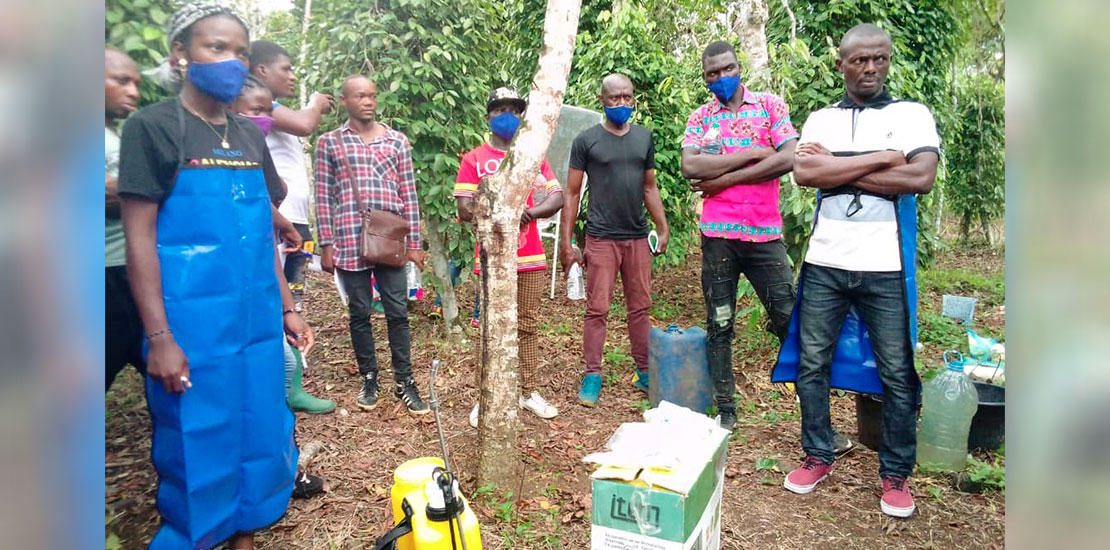 On 14 and 15 July, COLEACP organised group training on the “Safe Use of Pesticides” for plant protection product applicators in the Loum basin. This training is part of the Standards and Trade Development Fund (STDF) project “Improvement of the sanitary and phytosanitary quality of Penja pepper in Cameroon to facilitate access to international markets” (STDF/PG/593). Following this training, the participants are now able to carry out treatments according to good phytosanitary practices and to carry out the instructions: during… +
On 14 and 15 July, COLEACP organised group training on the “Safe Use of Pesticides” for plant protection product applicators in the Loum basin. This training is part of the Standards and Trade Development Fund (STDF) project “Improvement of the sanitary and phytosanitary quality of Penja pepper in Cameroon to facilitate access to international markets” (STDF/PG/593). Following this training, the participants are now able to carry out treatments according to good phytosanitary practices and to carry out the instructions: during… +Understanding the new EU Organic Regulation
- 24/06/2021
- Posted by: Sandra Borma
- Category: Apples, Avocados, Bananas, Benin, Burkina Faso, Cameroon, Capsicum, Cassava, Chillies, Côte d'Ivoire, Democratic Republic Of The Congo, Ethnic vegetables, French beans, Ginger, Guinea, Lettuces, Madagascar, Mali, Mangoes, Mangosteens, News, Okra, Onions, Papayas, Passion fruit, Pears, Pepper, Plantains, Rwanda, Senegal, Shallots, Spinach, Sweet potatoes, Togo, Tomatoes
 COLEACP organised an online workshop on 15 June to present the changes and potential impacts of the new European Union (EU) Organic Regulation 2018/848, which will enter into force in January 2022. The workshop brought together 80 participants, COLEACP partners involved in the production and export of organic fruit and vegetables. They were given a presentation by Michel Reynaud, Board Member of IFOAM Organics Europe and Vice President of Ecocert, who reviewed the main changes of the new regulation that… +
COLEACP organised an online workshop on 15 June to present the changes and potential impacts of the new European Union (EU) Organic Regulation 2018/848, which will enter into force in January 2022. The workshop brought together 80 participants, COLEACP partners involved in the production and export of organic fruit and vegetables. They were given a presentation by Michel Reynaud, Board Member of IFOAM Organics Europe and Vice President of Ecocert, who reviewed the main changes of the new regulation that… +
